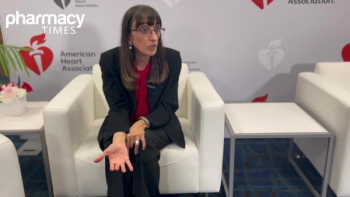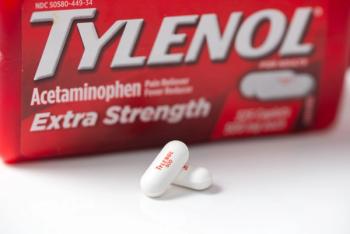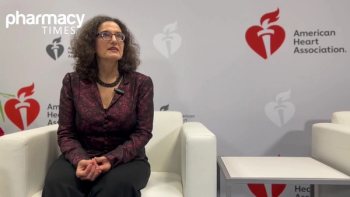
The new year can present challenges to health-system pharmacy.

Metformin may hinder exercise benefits, impacting blood vessel function and insulin control, raising concerns for diabetes management during physical activity.

At 3 and 9 months, inclisiran reduced low-density lipoprotein cholesterol in patients intolerant to statins or proprotein convertase subtilisin/kexin type 9 (PCSK9) inhibitors at rates comparable to those in placebo-controlled trials.

The Latest Kaiser Family Foundation Employer Health Benefits Survey Has Unsurprising but Consequential Findings

Integrating a pharmacist into multidisciplinary settings allowed for more thorough low-density lipoprotein cholesterol lowering in unique settings.

Pharmacists’ expertise is vital to AI’s safe integration into medication management. A growing array of resources and training supports pharmacists’ engagement with this new technology.

Researchers unveil a pharmacist-led intervention to enhance hypoglycemia management in older adults with type 2 diabetes, improving patient outcomes.

A new wrist-worn accelerometer device effectively monitors activity levels in heart failure patients, revealing critical insights into cardiovascular health.


The FDA lifts the black box warning on hormone replacement therapy, empowering women with new options for managing menopause symptoms.

Recent analysis reveals no significant link between maternal acetaminophen use and increased autism or ADHD risk, challenging previous health claims.

Inclisiran significantly enhances LDL-C goal attainment in patients post acute coronary syndrome, improving lipid management outcomes.

A bidirectional relationship was observed between long COVID and cardiovascular disease in survey results presented at IDWeek.

New data from AHA 2025 demonstrate the benefits of pharmacist-led hypertension management in reducing hemoglobin A1c (HbA1c) and blood pressure in minority patients with type 2 diabetes.

Explore the critical role of pharmacists in improving cardiovascular health and addressing mortality trends in underserved communities.

A new drug, DR10624, shows promise in reducing triglycerides and liver fat, offering hope for patients with severe hypertriglyceridemia and fatty liver disease.

Shoa Clarke, MD, PhD, discusses the need for improved cholesterol testing and treatment in young adults, emphasizing the vital role of primary care teams and pharmacists in early intervention and adherence.

Explore the link between chronic kidney disease and cardiovascular risk, highlighting the importance of GFR and albuminuria in patient care.

Explore the need for integrated approaches in cardiovascular and kidney health to combat rising mortality rates and improve patient outcomes.

Experts at AHA 2025 advocate for integrated care in T2D and CKD, emphasizing cardiovascular risk management to enhance patient outcomes.

Discover how Sotatercept impacts cardiovascular health and its potential benefits for patients with pulmonary arterial hypertension (PAH) in this insightful article.

Pharmacists play a vital role in managing cardiovascular health, addressing medication adherence, and educating patients, said Zia Ul Haq, MPH, MBBS.

Consistent use of continuous glucose monitoring (CGM) significantly improves glycemic control in adults with type 2 diabetes (T2D).


SGLT2 inhibitors significantly reduce atrial fibrillation risk and improve heart failure outcomes, outperforming GLP-1 agonists in cardiovascular benefits.

SHR-A1811 shows significant antitumor activity in early-stage HER2+ breast cancer, both alone and with pyrotinib, promising improved treatment outcomes.

Oncology pharmacy evolves rapidly, emphasizing the need for pharmacists to stay informed and reflect on personal growth for better patient care.

Maternal type 1 diabetes may influence children's DNA, potentially reducing their risk of developing islet autoimmunity.

Knowledge of serotype prevalence and virulence can optimize the management of community-acquired pneumonia.

New findings suggest omitting radiation therapy in postmastectomy breast cancer treatment enhances survival, emphasizing the role of systemic therapies.